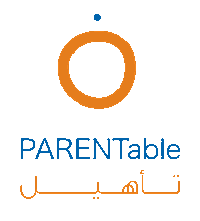
Starting the conversation
At the beginning of the conversation it makes sense to connect with the other person, e.g. through pleasant eye contact (not embarrassing, etc.), brief warming up through small talk which needs to be authentic. Because it´s important to clear the common ground of the conversation in order to be successful and to avoid misunderstandings. Some questions may help in this initial phase:

What are the goals/needs of the conversation for my conversational partner?

Is the entire problem manageable? Or will it be necessary to split it in parts where we need to work on?

Do the goals/needs fit to mine?

Are the goals realistic? If not, what can be a realistic goal?

Is it possible to find a way together?

During the conversation
During the conversation it is important to monitor if the process is functional, e.g. do
we really solve the problem or does the conversation get stuck? The following
questions and explanations shall help you during this phase to be aware of
dysfunctional communication patterns or traps in conversation in order to achieve a
senseable goal for the development of the child

Do I feel comfortable during the conversation? If not, what is the reason for that uncomfortable feeling? Does it make sense to utter it?

Are the parts of the conversation appropriate?
(Normally proportion of 50%: 50% should be aimed for. An exception are talks which have a high rate on giving information.

Do I have the impression that my conversational partner is feeling comfortable as well? If not, don´t hesitate to ask if your perception is right. And if you are right it might be good to ask for the reason?

Is it an open conversation? Or are there issues that are not spoken out loud (disguised messages)?
Sometimes you realise that when the conversation seems to run in circles without solutions or evasion tendencies with your conversational partner. Sometimes it makes sense to ask your communication partner if he/she shares your perspective, for example "I just have the feeling that we are going around in circles and I am just wondering whether this is also the case from your point of view?”, “What could be the reason?”

Is the conversation in your opinion leading to our goals/interests/topics? Is a clarification necessary?
_gif.gif)
In the final phase
Conversations between parents and teachers should be sustainable which means that implementation strategies should be in place at the end of the conversation, e.g. what needs to be changed / improved in order for a better support of the child? It is important for the conversational partner to take a stock at the end of the conversation.
Important questions can be:
Have the agreed goals been achieved? Have the identified topics been dealt with?
Is another conversation necessary?
What are the results from the point of view of the conversational partners? Should these be written down?
How satisfied are the conversational partners with the conversation / with the results?
What is the further procedure? Who is responsible for which step?
Is there a way how we can identify / check the agreed steps?

